#PlantBasedScience
Explore tagged Tumblr posts
Text

Unlocking nature’s treasures through synthetic biology! 🌿 This study pioneers eco-friendly production of ginsenosides, powerful plant compounds, using engineered microbes 🧪. It blends innovation and sustainability to replace traditional farming with greener, scalable biotech solutions. A leap toward healthier futures and cleaner industries! 🌍✨
World Top Scientists Awards
Visit Our Website 🌐: worldtopscientists.com
Nominate Now📝: https://worldtopscientists.com/award-nomination/?ecategory=Awards&rcategory=Awardee
Contact us ✉️: [email protected]
#Sciencefather#ResearchAwards#WorldTopScientistsAwards#SyntheticBiology#GreenBiotech#NaturalProducts#Ginsenosides#Biomanufacturing#EcoInnovation#MetabolicEngineering#SustainableProduction#FutureOfMedicine#PlantBasedScience#BioInnovation#MicrobialFactory#BiotechSolutions#BusinessEthics#professors#doctor#researchers
0 notes
Text
youtube
I've been learning about adaptogens lately and this video describes how adaptogens support the body’s response to stress and improve energy by balancing hormone levels and enhancing resilience.
1 note
·
View note
Text
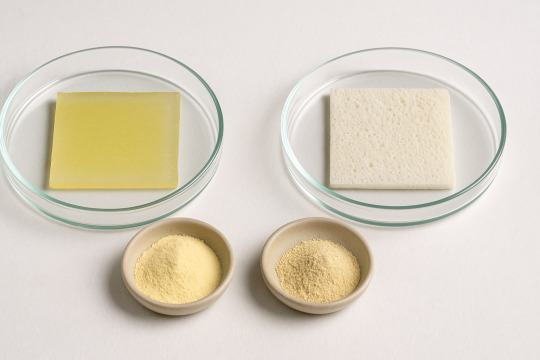
Plant-Based Gelatin Alternative: Gum Tragacanth
Researchers have explored gum tragacanth as a plant-based alternative to gelatin in edible films. By experimenting with different ratios of gelatin and gum tragacanth, they identified a 3:1 ratio as optimal for maintaining the gel-like structure of gelatin. However, the addition of gum tragacanth increases porosity, making the films more susceptible to water and saline penetration. While not a complete replacement, this partial substitution represents progress toward sustainable food packaging solutions.
Visit Us : bookofaward.com
#Gelatin#GumTragacanth#EdibleFilms#FoodScience#Biodegradable#PlantBased#WaterResistance#SalinePenetration#SustainablePackaging#AlternativeMaterials#FoodIndustry#EcoFriendly#Biopolymer#MaterialScience#GelLikeBehavior#FoodInnovation#NaturalIngredients#OrganicFilms#FilmDevelopment#EcoConscious#FoodPackaging#BiodegradableMaterials#EcoFriendlyInnovation#MaterialDevelopment#FoodTech#ScientificBreakthrough#FoodEngineering#PlantBasedScience#FoodSustainability#BioMaterials
0 notes
Photo

▶ Reversing The Irreversible With Plants 🌿 ▫️ Swipe Left 👈 ▫️ Credit: ➡ @plantbasedsciencelondon ▫️ Follow ↙️ 👉 @sunriseorganix 👉 @animalsaustralia 👉 @plantbasednews 👉 @MercyforAnimals 👉 @animalequality 👉 @plantsforfit 👉 @livekindlyco 👉 @the.undisputable.vegans 👉 @vegan_universe 👉 @shelter_ugolyok ▫️ Documentaries ↙️ 🎬 James Aspey Speech 👉 bit.ly/speech0001 🎬 Dominion 👉 bit.ly/domin2018 🎬 Earthlings 👉 bit.ly/earthforall 🎬 What The Health 👉 bit.ly/wthfilm 🎬 COWSPIRACY: The Sustainability Secret 👉 bit.ly/cow0001 🎬 PlantPure Nation 👉 bit.ly/plantpure2015 🎬 Forks Over Knives 👉 Netflix ▫️ Websites ↙️ 🕸 www.plantbasednews.org 🕸 www.fastactionnetwork.com 🕸 www.carnism.org 🕸 www.vegankit.com 🕸 www.challenge22.com ▫️ e-Books ↙️ 📙 30 Non-Vegan Excuses & How To Respond To Them. 👇 🕸 bit.ly/excuses30 ▫️ Follow 👥, Like ♥️, Share 🔄 & Comment 📝 #plantfood #wholefoods #plantbased #plantbasedfood #veganfood #plantbasedfoods #bestoftheday #vegansofig #Amazing #facts #checkthisout #mustsee #factsdaily #plantbasedathlete #mercyforanimals #govegan #veganfoods #Instagood #knowthetruth #friendsnotfood #plantbasedeating #plantbasedscience #plantbasednews #nutrition #Igers #goodfood #plantbaseddiet #Alzheimers https://www.instagram.com/p/BpeMVk1g1Cb/?utm_source=ig_tumblr_share&igshid=dbuqn2krcgim
#plantfood#wholefoods#plantbased#plantbasedfood#veganfood#plantbasedfoods#bestoftheday#vegansofig#amazing#facts#checkthisout#mustsee#factsdaily#plantbasedathlete#mercyforanimals#govegan#veganfoods#instagood#knowthetruth#friendsnotfood#plantbasedeating#plantbasedscience#plantbasednews#nutrition#igers#goodfood#plantbaseddiet#alzheimers
0 notes
Photo

@Odeshe3: #MyHandleExplained "Odeshe" means "Royal One" in the #Ghanaian language of #Fanti; and we promote "Regal health" + give the link to the original research #PlantBasedScience #GhanaianExcellence 🍇🥑🥦🍊🍆🍅🇬🇭
0 notes
Text
youtube
This video describes how the liver processes carbohydrates and highlights the importance of reducing excess carbs, rather than fats, for better health.
0 notes
Text
youtube
Eve opening talk by one of my favorite's Barbara O'Neill
0 notes
Text
youtube
#Gelatin#GumTragacanth#EdibleFilms#FoodScience#Biodegradable#PlantBased#WaterResistance#SalinePenetration#SustainablePackaging#AlternativeMaterials#FoodIndustry#EcoFriendly#Biopolymer#MaterialScience#GelLikeBehavior#FoodInnovation#NaturalIngredients#OrganicFilms#FilmDevelopment#EcoConscious#FoodPackaging#BiodegradableMaterials#EcoFriendlyInnovation#MaterialDevelopment#FoodTech#ScientificBreakthrough#FoodEngineering#PlantBasedScience#FoodSustainability#BioMaterials
0 notes
Text
youtube
Great info on understanding your blood glucose levels and how it is important!!
0 notes
Text
Seasonal Produce Guide: September/October
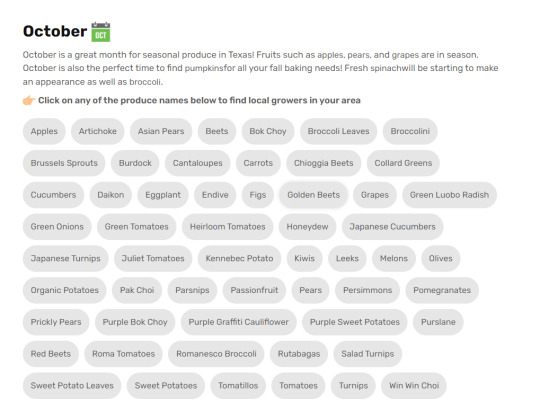
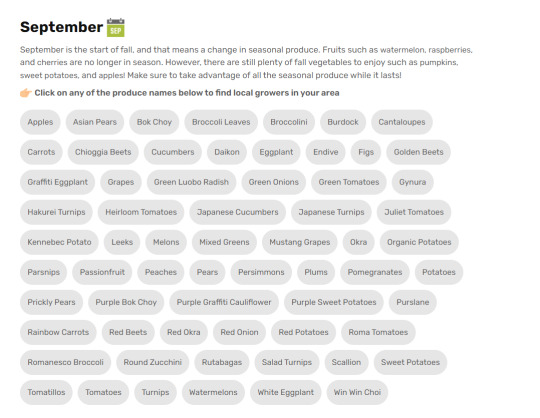
Good morning/afternoon everyone,
I know we are at the tail end of September but I wanted to go ahead and drop this seasonal produce guide for September and October as we enter the wonderful fall season. I am so excited for cooler weather, hearty stews and soups and overall warm and fulfilling comfort food. Life has been so busy for me lately, but the research never stops! I am ready for things to slow down so that I can share all of the wonderful things I've been learning and provide plentiful knowledge on how to stay healthy and fulfilled during these weather shifts. Remember to buy local, organic if you can and in-season for maximum nutrient absorption.
Will chat soon, Cheers!
1 note
·
View note
Text
The Truth Behind Food Additives: Natural/Artificial Flavors
When it comes to food, many of us are drawn to products that boast "natural flavors." After all, nature is often associated with health and authenticity. But are natural flavors really as pure and wholesome as they sound? In a recent article by the Environmental Working Group (EWG), the truth about natural and artificial flavors is revealed.
Contrary to popular belief, natural flavors are not always what they seem. In fact, they can contain both artificial and synthetic chemicals. The FDA defines natural flavors as substances derived from animals or plants, while artificial flavors are those that are not. However, the distinction between the two is not as clear-cut as it may seem. Natural flavors can be created from anything that can be eaten, even if those edible things are processed in a lab to create flavorings. On the other hand, artificial flavors can be made from both natural and artificial sources, but the resulting molecule is the same, and the route to making it can be different.
One of the main issues with natural flavors is that flavor manufacturers do not have to disclose their ingredients. This means that they can add synthetic solvents, preservatives, emulsifiers, carriers, and other additives to a flavor that qualifies as natural under current regulations. In contrast, natural flavors used in certified organic foods are subject to stricter regulations and must be produced without synthetic solvents, carriers, and artificial preservatives.
So, what does this mean for consumers? The bottom line is that natural and artificial flavors are not as different as we may think. Both can contain a mix of natural and synthetic chemicals, and the distinction between the two is often blurred. While natural flavors may have a slight advantage in certified organic foods, the overall impact on our health and well-being is minimal.
It's important to note that the safety of both natural and artificial flavors is rigorously evaluated by regulatory bodies. In fact, artificial flavors often undergo even stricter safety evaluations than natural flavors. However, if you prefer to minimize your consumption of processed foods and avoid both synthetic and natural flavors, opting for whole, unprocessed foods is a great alternative.
In conclusion, the idea that natural flavors are inherently better or healthier than artificial flavors is a misconception. The reality is that both types of flavors can contain a mix of natural and synthetic chemicals. Instead of focusing solely on the presence of natural flavors, it's important to prioritize a balanced and varied diet that includes whole, unprocessed foods whenever possible.
Source: https://www.ewg.org/foodscores/content/natural-vs-artificial-flavors/
0 notes
Video
youtube
Super informative and approachable talk on really how the human body is really affected by it's environment and how we interact with it. I like to think about how people lived thousands of years ago versus how we live now. The traditional instinctual consumption was moderated out of scarcity, but now that we have everything we are consuming and being exposed to new things at a rate faster than we can and/or are willing to document. And we are sort of self-experimenting and witnessing the results of rapid/unconscious consumption.
I've always believed in the ability to heal the self not only mentally but physically and really everything's connected.
0 notes
Photo
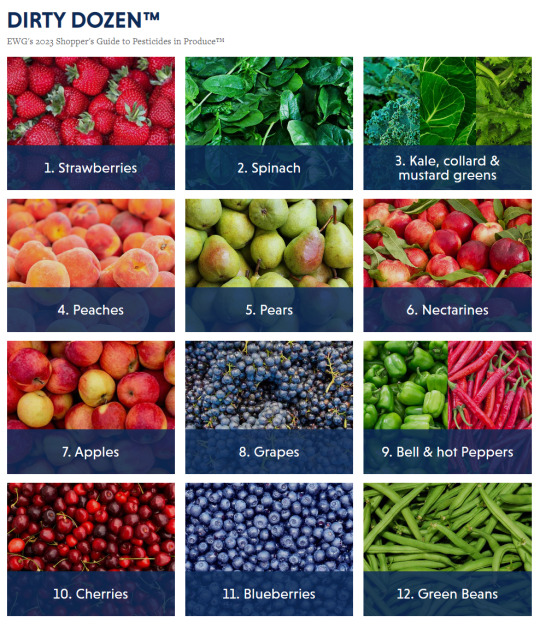
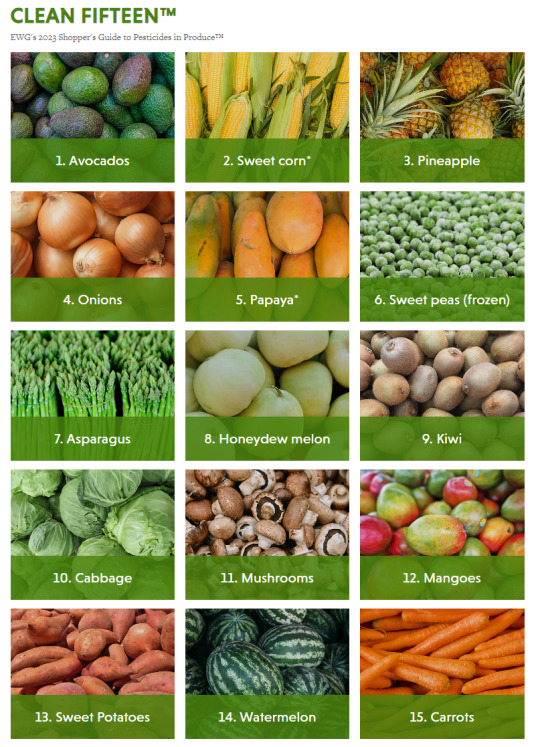
Happy Friday!
Today I want to talk about the Dirty Dozen and the Clean 15. It is so unfortunate that we live in a society where we have to detoxify our food! Especially the food that comes from mother nature, which (in my opinion) should be free and toxin-free! Thank goodness for groups like the EWG informing us on how we can best avoid these contaminates. The Environmental Working Group (EWG) releases the Dirty Dozen and Clean 15 lists annually to highlight non-organic fruits and vegetables with the highest and lowest pesticide residues. The Dirty Dozen is a list of 12 non-organic fruits and vegetables with the highest levels of pesticide residue, while the Clean 15 is a list of 15 fruits and vegetables with the lowest pesticide residues. The lists can help consumers make informed decisions about which fruits and vegetables to buy organic and which ones are safe to buy conventionally.
According to the EWG, pesticides are bad in produce because they are toxic by design, created to kill living organisms such as insects, plants, and fungi considered "pests." However, many pesticides pose health dangers to people, including cancer, hormone disruption, and brain and nervous system toxicity. The EWG's Shopper's Guide to Pesticides in Produce™, updated every year since 2004, ranks the pesticide contamination of 46 popular fruits and vegetables. Nearly 75 percent of non-organic fresh produce sold in the U.S. contains residues of potentially harmful pesticides. An EWG analysis of USDA data found that more than 15 percent of non-organic fruits and vegetables contain at least one of three neonicotinoid insecticides banned in Europe for their role in decimating bee populations.
There was a study that found that increased organic food consumption is associated with reduced incidence of infertility, birth defects, pre-eclampsia, and certain types of cancer. The review also found that organic produce has higher levels of certain nutrients, such as vitamin C, iron, and magnesium, compared to conventionally grown produce.
The stuff these companies and corporations are spraying our food with is effectively decreasing the quality of the food. It is best to buy organic when you can! Did you know?
You can tell if a piece of produce is organic by looking at the small numbered sticker. If there are 5 digits, then it’s organic. If there are 4 digits, it is conventional produce.
Here is a video that is super helpful in breaking down the reason why we need to avoid non-organic produce:
youtube
0 notes